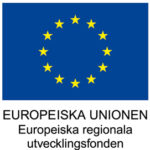
Avoid the IQ Trap
To create a dynamic environment where the company has the possibility to evolve, it is important to avoid some common pitfalls. One such pitfall is to believe that co-workers with the best education are also the ones who excel in other tasks just because they have a strong theoretical foundation in a specialized area.
We have a tendency to create space for individuals who have an academic degree in parallel areas within the organization. Often, a highly educated person with a high IQ becomes a manager and is thus, involuntarily, are also given administrative tasks, which removes them from their daily work as a valuable resource within their field of expertise.
The specialist is not good at everything.
An even greater task assigned to the specialist in question is to manage the department’s HR-related issues in a developmental and inspiring manner, despite lacking that knowledge. The consequence can be expensive, where dissatisfaction and inefficiency, combined with the fact that the specialist’s time to apply their knowledge in practice has been cut off, either wholly or partially.
Individuals with fixed opinions within their specialist field also tend to argue in a way that inhibits dynamic development, relying on their previously acquired theoretical background and experience. Those with dissenting views are often not given a chance to speak or are overruled by the specialist who believes they possess the correct and undisputed knowledge on the subject at hand.
Skepticism towards new knowledge
This is an attitude that cements perhaps long-standing outdated theories, where new perspectives and new facts could instead drive development and progress. I have been working on e-Health issues for a while, where AI is a development that could provide many specialists with support and an entry point to new facts and compiled empirical data. In my conversations with doctors, I quickly realized that this field was met with skepticism and comments like “But the computer can’t perform surgery!”
This is an example of a specialized field that perhaps more than any other could benefit from big data and AI development. The amount of medical research findings and collected empirical data is increasing by a factor of 5 every year. For a human, it’s impossible to summarize, comprehend, and draw conclusions from this enormous amount of data, something that AI algorithms can do with great skill instead.
High IQ is no guarantee of intelligent behavior
Research has shown that individuals with high IQs, just as much as those with lower ones, can be superstitious and believe in UFOs and astrology. The correlation between intelligence quotient, education, and rational behavior is not particularly strong. It’s not only facts and experience upon which we base our decisions; we are influenced by many other factors known as cognitive biases.
We tend to read and absorb information about what we already know, while avoiding those with differing opinions. Once we’ve formed an opinion, we use our intellectual capacity and position of influence to construct arguments and convictions that support our own viewpoint over others. When confronted with opposing perspectives, we employ our entire capacity to build counterarguments and try to undermine the other viewpoint.
Curiosity as a tool
Individuals who are curious, possess an open mindset, and who encounter new facts and theories that contradict their prior beliefs perceive this as something intriguing. The greater the deviations, the more significant the interest and fascination. Curiosity is not an inherent human trait; instead, it’s something we must embrace by questioning old theories and perceptions and instead seeking out the new.
In pedagogy, this is often explained as the process where we receive information, a thesis, which we question and blend with our own knowledge and experience. Out of this synthesis of the old and our own understanding, a new thesis emerges, which is what we ourselves internalize as new knowledge. In essence, we don’t simply accept the sender’s thesis; rather, we question it and blend the old with the new.
In the field of innovation technology, there’s a similar process where acquired knowledge matures and blends with our own knowledge and experience, with the hope that after a while, a new idea will emerge.
We need to create methods to counteract stagnation and to establish a truly learning organization. Let go of your own knowledge and attempt to blend it with others’ and with new facts in order to propel your organization forward.
Patrik Löfvin
NXT Learning

